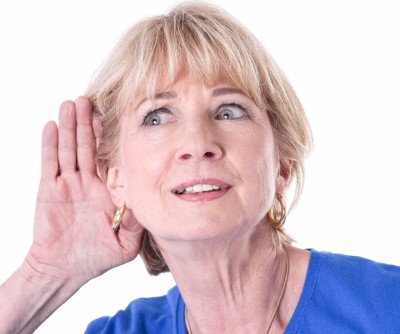Blog
-

6 Tips to Prevent Hearing Loss
 8 Nov , 2017
8 Nov , 2017
6 Tips to Prevent Hearing Loss
Millions of Americans go through their daily lives without hearing well, particularly as they grow older. But there are ways to keep your hearing sharp, a top expert says.
“Hearing loss is a bigger problem than people want to admit. Hearing loss impacts not only you, but also the other person you need to communicate with as well,” Dr. Sreekant Cherukuri tells Newsmax Health.
About 48 million people – 20 percent of the U.S. population – report some degree of hearing loss. For people who reach the age of 65, this number rises to one in three, the Hearing Loss Association of America (ALAA) says.
“Hearing loss can come with aging, but too often it’s assumed that most people with it are over the age of 65. This is a myth,” says Cherukuri, an ear, nose, and throat doctor and founder of MDHearingAid, a direct-to-consumer provider of hearing aids.
“Most of my patients are in their 40s and 50s,” he adds.
Indeed, according to the AALA’s statistics, most of those people who suffer hearing loss – 60 percent – are not retired, but are working or in educational settings.
While numerous studies document the toll that hearing loss takes on daily life, social interaction, and personal relationships, its impact for people on the job is often overlooked, says Cherukuri.
The Occupational Safety and Health Administration (OSHA) says that people should not work in settings with noise higher than 85 decibels for more than eight hours without ear protection. This equates to the sound of a garbage disposal or dishwasher.
“Most people talk at 60-65 decibels, so, if the noise level gets louder, say, 115 decibels the shorter amount of time you should be in there,” he says.
Listening to loud music is another cause of such hearing loss, especially in the Baby Boomer population, but not necessarily because of rock concerts attended in youth, says Cherukuri.
“People tend to place the blame on loud concert, like Woodstock, or other music events, but, although these events were extremely loud, they were far and few between,” he says.
The biggest danger facing people today is the use of in-ear headphones and earbuds while listening to music for extended periods of time, Cherukuri says.
“The technology has gotten so powerful, and the batteries so good that this enables people to listen to music all day long. They don’t realize the harm they’re doing to their ears, and they won’t realize it until many years from now,” he explains.
Here are six ways to protect your hearing:
1-If you work in a noisy environment, make sure that your employer has a hearing protection program in place, and wear earplugs, noise-cancelling headphones, or earmuffs.
2-When involved in a noisy hobby, like shooting on a gun range, for instance, make sure you use ear protection.
3-When listening to music, use over-the-ear headphones instead of earbuds or in-ear headphones. This way, they sit on your ear, instead of inside. Also, chose studio-quality, noise-cancelling headphones; they may be more expensive, but you won’t have to turn up the volume as high.
4-Follow the “60/60” rule when listening to music. Listen to it at 60 percent of the maximum volume for no more than 60 minutes at a time, and then take a break. A “hearing detox” of only five or 10 minutes will help.
5-Pay attention to the noise that surrounds you. If you are concerned it’s too loud – in your workplace, for instance – use a sound meter to check.These are more accurate than a smartphone app.
6-If you have a hearing loss, get a hearing aid. Don’t opt for a personal hearing amplifier because they are intended to help people hear when doing activities as hunting or bird watching, not to compensate for hearing loss, the Food and Drug Administration notes.
If you’re concerned about your hearing, you should get it checked and, if it is diminished, get a hearing aid, adds Cherukuri.
Source: © 2017 NewsmaxHealth. All rights reserved.
Image credit: Dreamstime





























































































































































































































































































































































































































































































































































































